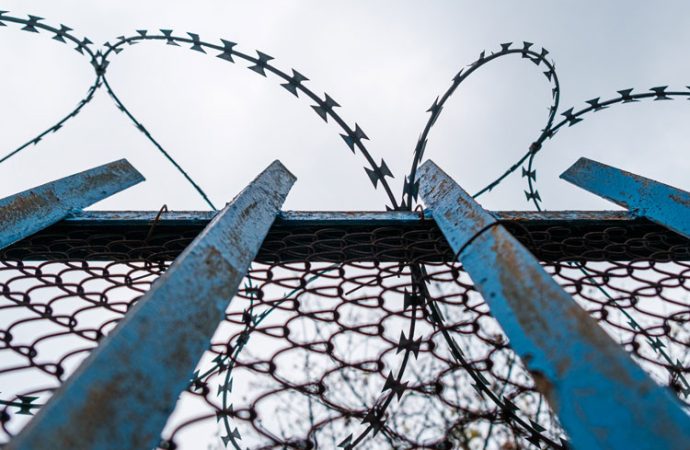Author Recent Posts Malaika Shamim Latest posts by Malaika Shamim (see all) Violation of UN resolutions and international law: Response of International Community in Post-370 Kashmir Scenario – January 29, 2024
The abrogation of article-370 is an assault on Jammu and Kashmir’s political autonomy. By repealing Article 370 of the constitution, people from rest of India will now have the right to acquire property in Illegally Occupied Jammu and Kashmir and to settle there permanently. Kashmiris as well as critics of India’s Hindu nationalist-led government see the move as an attempt to dilute the demographics of Muslim-majority Kashmir. On 5 August 2019, the abrogation of Article 370 of the Indian Constitution, which conferred a special status on Jammu and Kashmir in the realm of peripheral governance and autonomy, altered the geopolitical and social dynamics of the region.
The government has been floating the narrative that the dissolution of this article was a result of numerous inputs, with the consent of Kashmiris and with facilitation from the elected state government, over the years to achieve the objectives of integration, administrative ease, and good governance. However, how the abrogation of Article 370 had been carried out under heavy militarization of the region and the imprisonment of all the Kashmiri politicians was far from amicable. Furthermore, in the aftermath of the abrogation, the Kashmir valley has witnessed political instability, human rights violations, and alteration of indigenous identity by forced migration and revision of exclusive land rights. The Indian government’s portrayal of abrogation as the biggest success contrasts with the ground realities of a militarized life in Kashmir.
Security forces extended their detentions even to those not involved in anti-government demonstrations, justifying their actions as “preventive measures” against government criticism. The central government imposed a prolonged curfew, limiting the fundamental rights of the Muslim majority in the region. Cell phones, internet, and cable TV were shut down for months, isolating the region from the outside world. Observers from both India and international platforms reported challenges in obtaining information about the region, with government forces intimidating journalists against reporting on ground developments.
The revocation of Article 370, which granted special status to Kashmiris, is considered a violation of their fundamental human rights, particularly relating to their identity. The Universal Declaration of Human Rights (UDHR) is a globally accepted document, with countries incorporating its principles into their laws. The declaration outlines 30 articles safeguarding various rights, from basic freedoms like speech and movement to more profound liberties such as security and legal protection.
Following the revocation, communication lines were severed by the Indian government for months, accompanied by the deployment of thousands of security forces to the region, amounting to approximately one soldier for every 12 individuals. Additionally, numerous paramilitary forces were mobilized in the area. Hundreds of Kashmiri politicians, journalists, activists, and academics were taken into custody, while thousands of innocent people were detained, and civilians faced casualties inflicted by paramilitary forces.
for over seven decades, the Indian armed forces have faced allegations of consistently violating UDHR in the Indian-administered region of Jammu and Kashmir (IIOJK). In 2018, a UN report highlighted challenges like impunity for human rights violations and limited access to justice in Kashmir. Special laws, such as the Armed Forces (Jammu and Kashmir) Special Powers Act (1990) and the Jammu and Kashmir Public Safety Act (1978), were noted to hinder the normal legal processes, impede accountability, and jeopardize victims’ right to seek remedies.
The BJP government has been accused of attempting to alter the demographic structure of Kashmir. To achieve this, the government permitted security forces to purchase land in the region. But the UN, regrettably has shown limited responsiveness to India’s use of force in Kashmir. The situation in the Indian-administered region has worsened under the Hindutva ideology of the Modi government, reflecting extremist intentions. Despite this, there remains a lack of a unified response against India’s illegal occupation of Kashmir.
The global response to the Kashmir issue has been criticized as feeble and unhelpful since 1947, treating it merely as an unresolved matter of partition. This one-sided stance has allowed India to employ coercion, force, and violence to stifle the voice of the Kashmiri people. The Kashmir conflict, coupled with the India-Pakistan dispute, stands as a stark example of human rights abuses and potential genocide. Since August 5, 2019, over 200 people have reportedly been victims of extrajudicial killings in Kashmir.
Pakistan has consistently raised diplomatic protests in the United Nations Security Council (UNSC), often with the support of China, highlighting the situation since August 5, 2019. Recently, the UNSC did not acknowledge India’s demand to exclude the India-Pakistan question from its proceedings. Kashmir has consistently been a crucial point in Pakistan’s annual UN General Assembly speeches. However, to address the Kashmir issue effectively, Pakistan’s diplomacy needs a more practical and active approach, engaging in bilateral, regional, and international forums. Hence, collective and coordinated efforts are necessary to curb violations of human rights and international law.





















Leave a Comment
Your email address will not be published. Required fields are marked with *